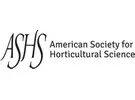The ASHS Board of Directors approved the transition to full open access for the Journal of the American Society for Horticultural Science and HortScience at the spring board meeting on April 15, 2019. This move will be in effect on January 1, 2020. This action follows the move of HortTechnology to full open access on January 1, 2019. "The HortTechnology transition to open access has been very positive and there has been a 5% increase in the number of submissions as of April 30, 2019. This positive experience (combined with the fact that personal and library subscriptions to our journals has continued to decline) made it clear that the continued success of our journals depends on moving to open access as soon as possible", says Carl E. Sams, Chair of the ASHS Board of Directors.
"A pricing structure for publishing fees for the JASHS and HortScience that will secure our societies financial structure, be competitive with other open access journals in our field, and be fair to our membership has been agreed upon and will be announced soon. It is important for our society to continue efforts to modernize our operations to improve operational efficiency, increase the quality of our meetings and our publications, and maximize our member benefits. Our move to open access is a positive move toward maintaining and improving the quality and reputation of our journals in an increasingly competitive information network. It is also a significant member benefit.
"Open access will provide greater visibility for our authors’ work and thus for their program and for their organization (as discussed in my January 2019 Reflections column). It will also increase the impact of our authors work worldwide and reach an audience that does not have access to our journals under our current structure. The true impact of our work occurs when it is freely available and can be used to improve the quality of life for everyone! This is increasingly more important as we face feeding an increasing world population. In my opinion no profession is more involved in that effort and in improving the quality of our environment and thus our life. Additionally, this increased visibility will result in an increase in citations of our articles which will increase the calculated impact factors of our authors and our journals. Another positive advantage for our authors is that page length for articles will not be important since the extra pages will not incur additional cost. Also, color and images will not incur additional fees. Another important advantage of open access is that articles will be posted and available online as soon as they are accepted and will not be delayed waiting for the next issue of the journal to be completed. The overall advantages of open access for our journals and our members is far greater than any short term adjustments we may need to make during the transition period.
"I welcome and seek comments from my fellow members on this topic. Please feel free to contact me at carlsams@utk.edu. I hope to hear from all of you and appreciate constructive comments to help all of us better serve and support our society."
For more information: American Society for Horticultural Science (ASHS)
American Society for Horticultural Science (ASHS)
ashs.org
